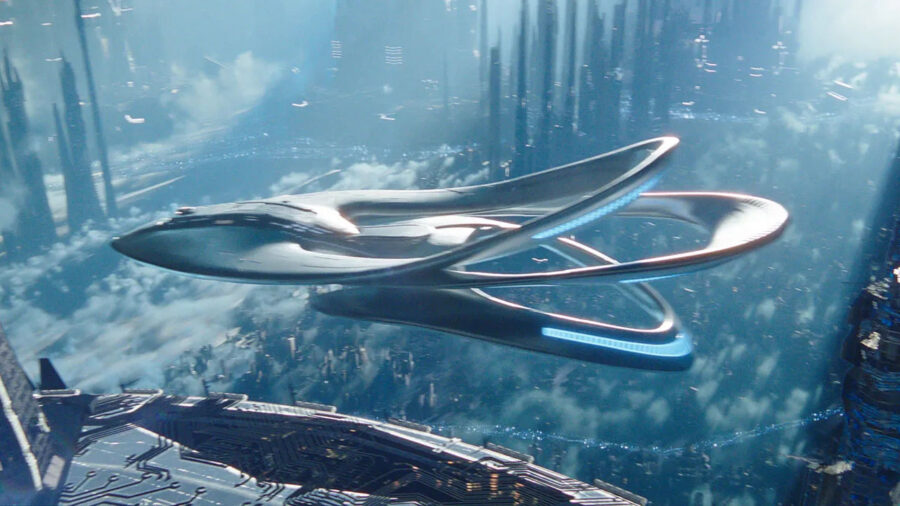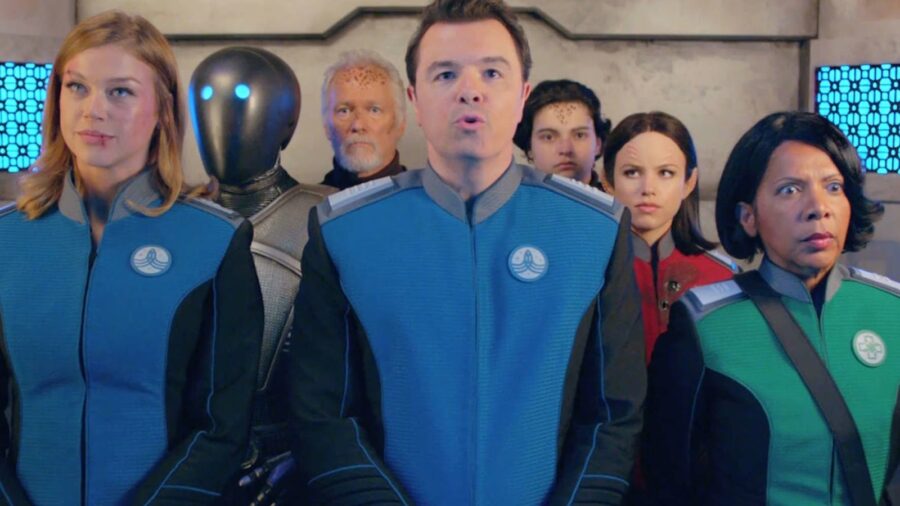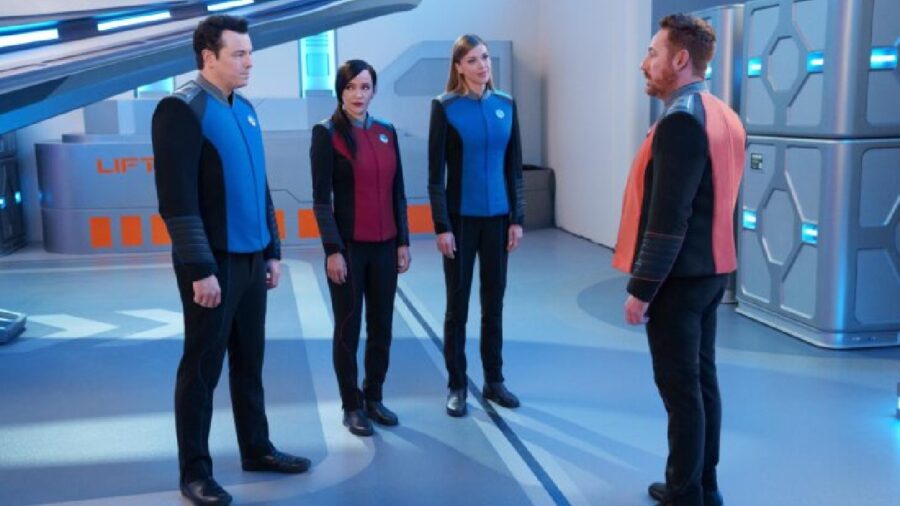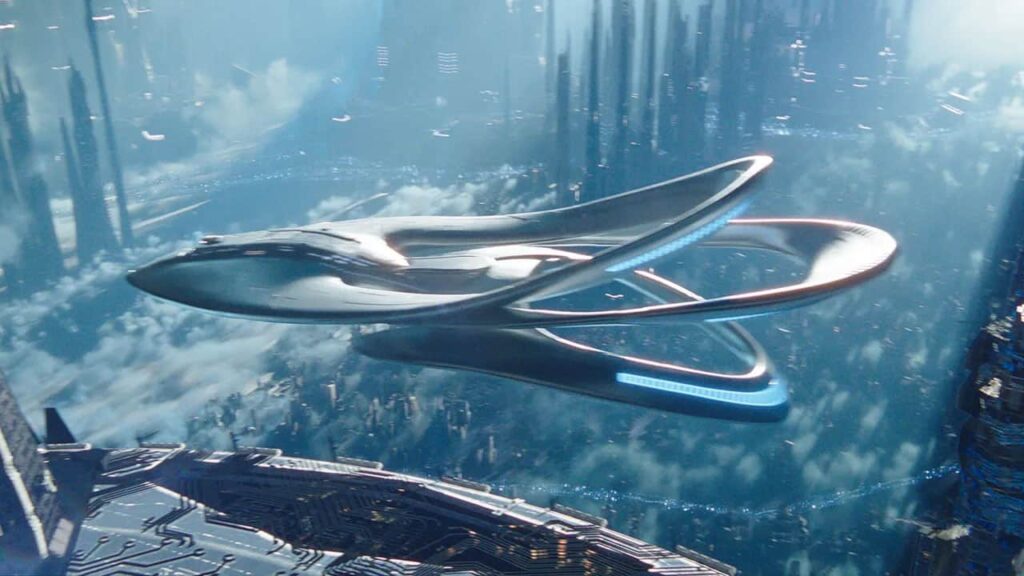By Jonathan Klotz
| Published

Seth MacFarlane may still be most well known for his animated shows, Family Guy and American Dad, but in 2017, he launched his greatest creation, The Orville, a sci-fi series that begins and was marketed as a parody of Star Trek. Fox’s marketing for the show leaned heavily into the jokes of the first episode, which includes the introduction of the Moclans, a species that urinates only once a year, but as long-time viewers of the show already know, what sounds like a joke, ends up leading to fantastic character moments. That’s what makes the series MacFarlane’s greatest trick to date: it’s not a parody; it’s a loving homage, and as the series goes on, it becomes darker, more serious, and might be better than modern Star Trek.
Better Versions Of TNG’s Worst Episodes

In the very first scene of The Orville’s pilot episode, we see MacFarlane as Captain Ed Mercer, walking into his home to find his wife in bed with a blue alien and his blue secretions. Captain James Tiberius Kirk was famous for being a womanizer if they were human, Orion, or even a few in between, which is why, starting with Ed at his lowest, drunk, disorderly, and in danger of losing his job, MacFarlane’s show makes it clear that it’s taking things less seriously than Star Trek ever did. The second episode makes this even more clear, as it features the muscular Moclan Bortus asking who Kermit the Frog is before announcing that he’s incubating an egg and the diminutive security officer, Alara, saving the day thanks to reality television.
The Orville Season 1 includes episodes mocking social media (“Majority Rule”), one of the worst Star Trek: The Next Generation episodes, “The Naked Now,” in “Cupid’s Dagger,” and caps off the season with “Mad Idolatry,” a reminder of why Star Trek’s Prime Directive exists. Star Trek: Into Darkness played with the idea of a primitive species seeing the Enterprise take off and start worshipping it, but “Mad Idolatry” went all the way with a planet that phases in and out of the universe, forming a religion based on First Officer Grayson (Adrienne Padalicki, Ed’s ex-wife). It’s both an absurd premise and something that every Trek fan starts to think about at some point, considering how many alien civilizations Starfleet encounters, so it’s fun to see it play out, and it’s clear by that point of the season, MacFarlane is a huge Star Trek fan.
Seth MacFarlane is, in fact, such a huge fan of Star Trek that rather than make a comedy version of the classic franchise, he wanted to make another Trek series and used the comedy angle of The Orville Season 1 as a trojan horse to get what he really wanted. And it worked. Season 2 jettison the more absurd plots of the first season and replaces them with character-driven drama, including again, a superior version of a TNG episode with “A Happy Refrain” doing for the cybernetic Isaac and Dr. Finn what “In Theory” did for Data and Jenne. The difference is “In Theory” was a one-off, but “A Happy Refrain” not only paid off a year of character development, it marked a permanent turning point for the characters.
From Comedy To An Emotional Sucker Punch

On Rotten Tomatoes, The Orville Season has a perfect 100 percent rating among critics, and for a good reason, because while it remains funny throughout the three-season run, MacFarlane does low-stakes character-driven episodes better than any writer today. Twice in a Lifetime” from Season 3 is considered one of the best episodes in the show’s run, combining time travel with a Season 2 callback to create an emotional gut punch of an ending that most sci-fi shows today could only dream of achieving. If you start watching the series and find it hard to get through the first few episodes, stick with it because if you know where the crew starts from, it makes it all the more satisfying when you see where they end up. /
That’s what ultimately makes The Orville a work of mad genius born out of love for Star Trek but not beholden to the franchise’s traditions. While Star Trek: Discovery was struggling to find an audience, Seth MacFarlane was there with his tribute to The Next Generation, which quietly featured the sharpest, deepest, and surprisingly emotional writing of any sci-fi series of the last decade.
The Orville is currently streaming on Disney+ and Hulu.







